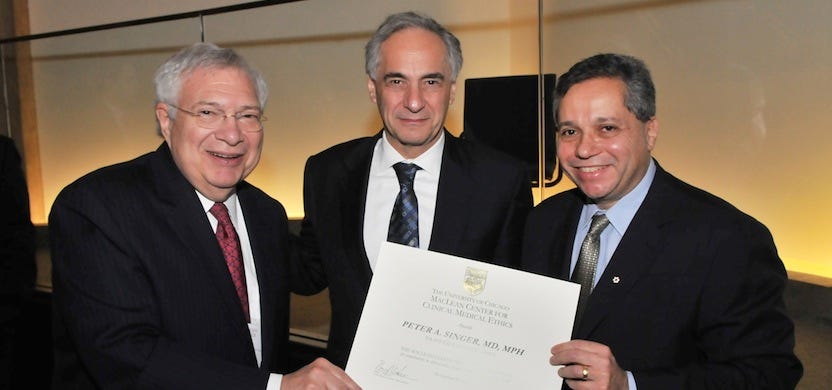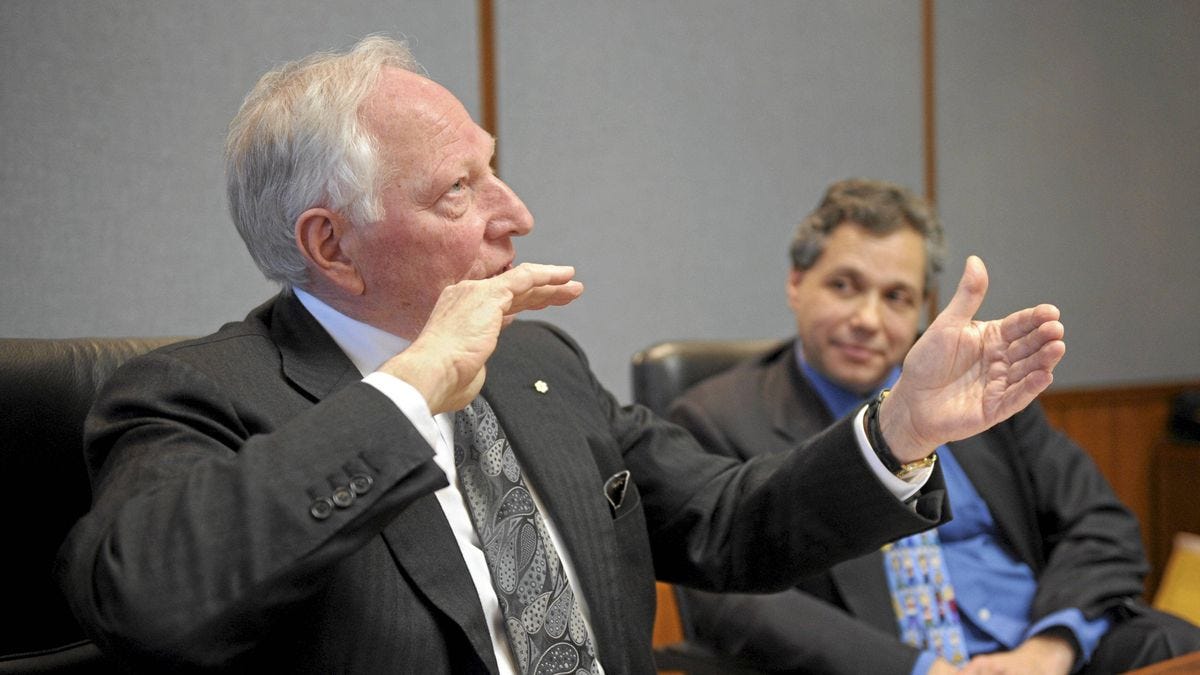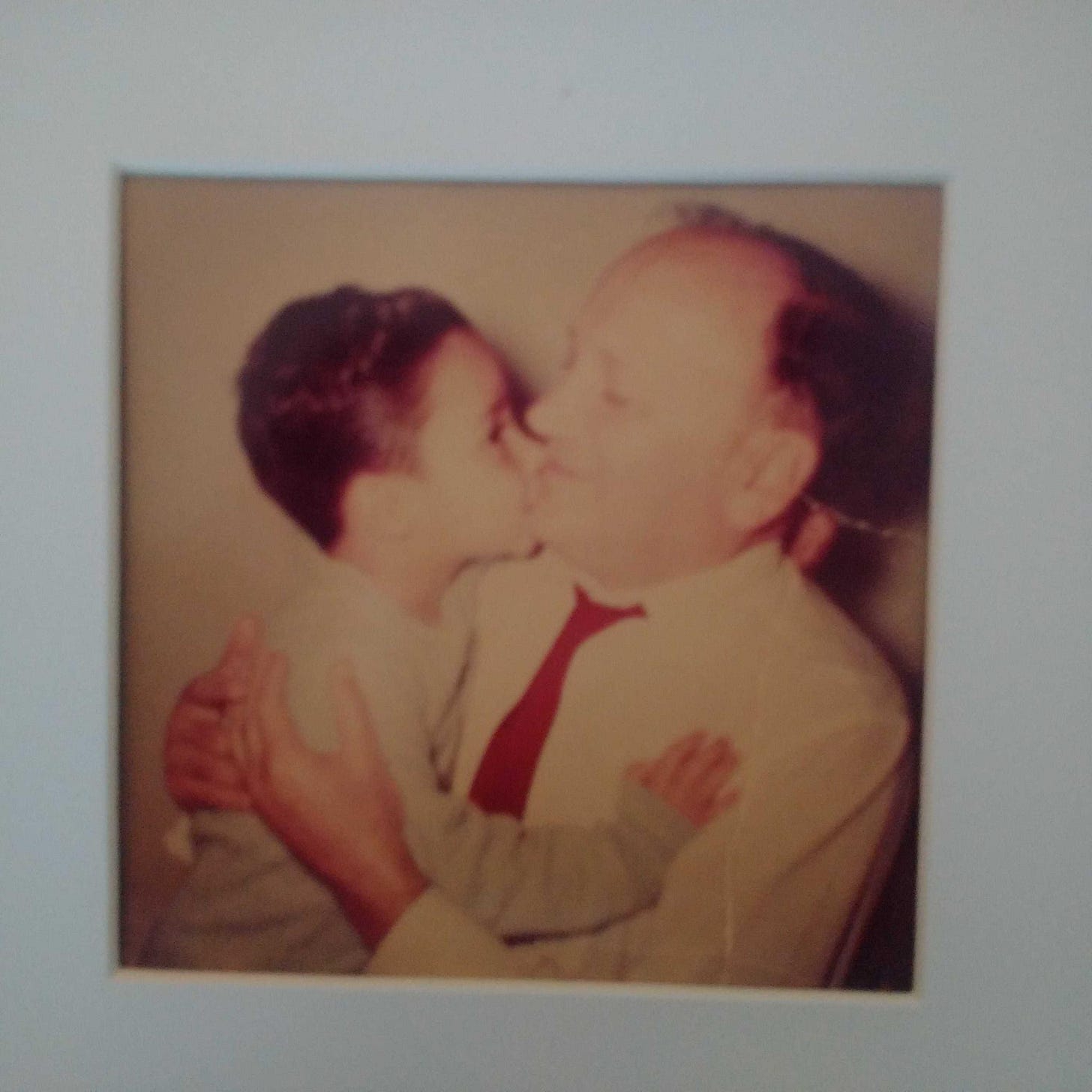Get the right mentors working for you!
Career advice for young (and not so young) people — Part 2
What do you want to be in 10 years? This question is almost impossible to answer (and sounds a bit patronizing like ‘What do you want to be when you grow up’.)
What do you want to do in 10 years? Difficult question to answer. Most people are not very specific.
Who are three people doing now what you want to be doing in 10 years? Easier question to answer. Can be very helpful in discerning your strategic career direction — and in advancing it through mentorship!
My top line career advice, as I wrote about in Part 1 of this three-part blog on career advice for young (and not so young) people, is ‘Find a problem and solve it.’
Almost as important is to get the right mentors working for you.
I have enjoyed mentoring people all my life. Early on, I did so in formal settings like with graduate students. Subsequently, I broadened the scope of my mentorship. Over the past three years, during the pandemic, I have engaged with almost anyone who reached out to me, usually by social media, seeking career advice.
I have found that asking people what they want to be or do in 10 years often yields vague responses.
However, most people I have spoken with can name 3-5 people who are doing now what they would like to be doing in 10 years.
Sometimes they name 1-2 people off the cuff while we chat and then the rest after a bit of reflection.
Usually I can add the names of a few others who are doing similar work.
When we talk about those 3-5 people, how they are similar or different from each other, and why the person chose them, it helps bring into sharper focus and more concrete terms a vision of the future for the person seeking advice.
Then I ask the person seeking advice if they have spoken with the people named. Usually they have spoken to some but not all of them.
Then I encourage the person to reach out to all the people named for career advice.
Sometimes I will introduce the person to those I suggested, usually by saying I have had a mentorship conversation with the person and might they be willing to do so as well?
Usually, people say yes to speaking with young people seeking career advice. After all, everyone loves to give advice (including me)!
And if they don’t respond, you wouldn’t want to talk to them anyway.
If the first conversation goes well, then I encourage the person seeking advice to turn those people into mentors. And then get them working for you. I explore what that means in the section below on benefits of mentorship.
My first mentor was my high school biology teacher who introduced me to the topic of bioethics — in 1977, well before the field became popular. I found my mentors as a medical student, in the course of applying for fellowships, and in the context of proposing and developing new educational programmes. (Warning: this blog gets kinda autobiographical from here on down!)
Being more proactive and intentional about identifying and reaching out to mentors, as I suggest above, is a way to increase access to the benefits of mentorship.
In this blog I provide career advice both for people seeking mentorship and for mentors, because ideally we each play both these roles.
Mentorship has many benefits
Everyone knows that mentors provide advice. If you are non-defensive about this advice, as I wrote in my last blog ‘Find a problem and solve it’, this mindset can lead to your continuous improvement. Indeed, mentors can help you to become less defensive in accepting advice.
The best mentors don’t only teach you subject matter content; they teach you how to think, as I said in this interview following the death of one of my own mentors, whom I met during my fellowship training:
Alvan R. Feinstein … joked in his 400th scholarly article that he hoped to continue writing until he faced “the ultimate rejection, by adverse pathophysiology.” When Feinstein did die in October [2001]—at age 75, while participating in the Gairdner Foundation conference in Toronto—his former student, Peter A. Singer, M.D., M.P.H., found himself taking Feinstein’s place on the podium. Instead of listening to Feinstein speak, Singer delivered a eulogy.
The first part of Singer’s tribute was what one might expect: He described Feinstein’s leadership in establishing the field of clinical epidemiology … But then Singer did something unusual: he quoted a comment Feinstein had written on a manuscript that Singer sent him.
“I don’t think your writing is actually bad,” Feinstein wrote to Singer, the Sun Life chair in bioethics at the University of Toronto. “After you fixed the tone and removed most of the sociobabble in this manuscript, the paper could be understood despite its prolixity, verbosity, and subadequate inter- and intra-sentence structure.”
That Singer would affectionately recall the man who offered such criticism reflects Feinstein’s mystique: he had almost impossibly high standards and never minced words, yet his students deeply valued his guidance …
[Singer] says he uses what Feinstein taught him every day. “He didn’t teach us only clinical epidemiology. He taught us how to think,” said Singer in an interview. He said Feinstein also imparted to students “a fundamental irreverence for scientific authority and established beliefs. … He was one of the giants of 20th-century American science. It was really an honor to be able to learn from him.”
[Source: Yale Medicine Magazine, Spring 2002]
Beyond teaching you how to think, what other benefits can excellent mentors provide? A lot!
I think these benefits are well captured by the concept in business strategy called network effects: “any situation in which the value of a product, service, or platform depends on the number of buyers, sellers, or users who leverage it. Typically, the greater the number of buyers, sellers, or users, the greater the network effect—and the greater the value created by the offering.” In this case, the product whose value is increasing based on network effect is … you!
Mentors can help you develop your career. For me the paragon example of this was my mentor Mark Siegler, whom I met while applying for fellowship training. Mark co-founded the field of clinical medical ethics, and was building the field through his writing but also his seminal fellowship programme at the University of Chicago. So the success and placement of his trainees was a marker not only of their success but also of his. He helped his fellows to learn how to think about clinical ethical dilemmas, and he also helped them develop their careers. He would often go with his fellows to prospective employers and give medical grand rounds together with his trainees, and he continued to support their careers for many years after their fellowship.

Mentors can help you develop and demonstrate your leadership. This was certainly so with my mentor Frederick Lowy. Between 1980 and 1984 he was Dean of Medicine at University of Toronto and encouraged me and a group of fellow medical students to launch a voluntary seminar series of medical ethics which eventually became the basis for medical ethics teaching in the faculty. Then, between 1989 and 1995 Fred was Director of the University of Toronto Centre for Bioethics, and I had the opportunity to work alongside him (and others) as Associate Director. Building upon this experience, in 1996, I was selected to become the founding Director of the University of Toronto Joint Centre for Bioethics, which was an expanded partnership not only inside the university but also with its teaching hospitals.
Mentors can help co-found organizations. My mentor the late Joseph L Rotman was a highly successful businessman, who decided to use his entrepreneurial skills, as well as his philanthropy, to help the social sector in Canada in various important ways. I met him while developing an executive course in genomics policy at the Rotman School of Management. We discovered that we had a common vision of innovation in international development. Together, we co-founded Grand Challenges Canada, with me as CEO and Joe as Chairman. His vision, as well as his integrity and trustworthiness, was no doubt a factor in the initial decision of the government to entrust significant resources to the organization.
Each of these mentors — and other mentors and colleagues as well — has a very special place in my heart and I will be forever grateful to them.
Notice anything my mentors have in common? They were not very diverse.
Given the historical structures 40 years ago when I began my professional journey, power was often in the hands of white men. So perhaps this is not surprising. But it does show how mentorship and privilege can be intertwined, as I take up in the next section.
When I reflected more deeply, and only after many years and in retrospect, I came to realize there was also a psychological motivation that influenced my selection of mentors. My dad died when I was eleven years old. I now see that to some extent I was seeking to fill this gap. I share this deeply personal insight because I want to encourage you to reflect on your own motivations in choosing mentors.
Use mentorship to promote equality of opportunity
While mentorship can entrench and perpetuate privilege, it can also be an extraordinarily potent tool to promote equality of opportunity, if used intentionally to this end.
Talent is much more widely distributed than opportunity. I mentioned in my welcome blog that throughout my career I worked to support and elevate voices from the global south. Over time, I felt a greater and greater responsibility to reciprocate the mentorship I had received, and use my privilege to promote equality of opportunity.
My first systematic experience in doing so was developing the MHSc in bioethics and using it to train mid-career professionals from Africa and Asia in bioethics.
The reunion of the first classes of the programme (pictured above) was hosted in South Africa by one of the trainees, Jerome Singh. That programme led to lifelong mentorship relationships, and showed how a critical opportunity, provided at the right time, can help highly meritorious colleagues launch stellar careers. Twenty years later, many of those pictured above are national and global leaders in bioethics today!


In addition to promoting equality of opportunity, mentorship can be used to promote human rights. When I left the bioethics centre in 2006, my colleagues graciously endowed an award in my name to support students. I was proud to have my name associated with the recipients, especially when it promoted equality of opportunity or human rights, as in the case of Florence Ashley. While they were selected for the award by an independent panel, I followed up with them to discuss their groundbreaking thesis scholarship and book on banning transgender conversion practices and offer my support.

Of course not all mentors are in a position to provide a full time training position or an endowed award. But everyone can do something to promote equality of opportunity. Even a simple but strategic introduction could help, as I wrote about in the introduction to this blog. Bottom line: do something, do what you can.
Use mentorship to improve your leadership
I have come to see mentorship as an essential and potent element of leadership.
Mentorship is a form of servant leadership, which is focused on this question: "Do those served grow as persons? Do they, while being served, become healthier, wiser, freer, more autonomous, more likely themselves to become servants?"
This is the ‘coaching’ leadership style, identified by Daniel Goleman in his classic article in Harvard Business Review, in which he described different leadership styles as part of “emotional intelligence.” In his taxonomy, coaching leaders develop people for the future.
I enjoyed many opportunities to provide mentorship in Grand Challenges Canada, in the context of providing funding to more than 1000 innovations in 90 countries while I was there, with about 2/3 of the innovators supported coming from low and middle income countries.
Indeed, I think my own leadership improved when, with the help of 360 degree feedback and an executive coach, I focused more on mentorship and coaching (and less on direction and micro-management). Mentorship became a critical element of succession planning. One of the things I feel proud of is that at Grand Challenges Canada, I was succeeded by two women co-CEOs, whom I had the privilege of mentoring (and being mentored by!), and who developed and are applying a feminist co-CEO model of leadership
I have found that mentorship can also mobilize people towards a common vision (which Goleman calls, I think unhelpfully, the ‘authoritative’ leadership style). This form of mentorship can be particularly useful in the context of an organization (more about this in my next blog).
Ultimately the greatest privilege and joy of mentorship is not to the person being mentored, but rather to the mentor him/herself. These are two way, often lifelong relationships where both sides learn and grow. The best outcome is when the person who had been mentored eclipses the mentor. There comes a point in life when one gains more joy and purpose from mentoring, and helping to solve problems indirectly, than from finding a problem and solving it first-hand.
Strengthen your mentorship network — and pay it forward
I have used many personal examples in this blog, because mentorship is personal and relational. I have had the great privilege of mentoring hundreds of people to a greater or lesser extent. And it has been one of the greatest joys of my professional life.
But this blog is not about me; it’s about you. Everyone can strengthen their mentorship network, and reciprocally the mentorship they provide.
So please ask yourself these questions:
Do you have 3-5 mentors who are doing now what you want to be doing in 10 years?
Are they working for you in the ways you need?
Are they diverse?
Identify who these people are, reach out to them, turn them into your mentors, and get them working for you!
In turn, if someone asks for your advice or mentorship, give it to them.
Most importantly, if you are in a position of power or privilege, use your mentorship to promote equality of opportunity.
That is how we change the world! Just imagine if everyone did.
Next time, Part 3 on career advice for young (and not so young) people: Hop aboard a rocket-ship!







Thank you, Peter for mentoring me as Principal over 15 years ago during your tenure as Chair Branksome Hall. Our continuing friendship and impactful connection gives me perspective and a sense of adventure as I embrace my second half of life.
Bravo Peter, for launching this blog, and also for sharing aspects of your personal story, which really bring it all to life. Simply brilliant!